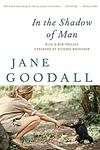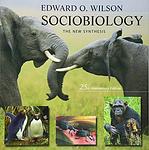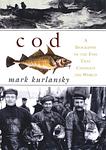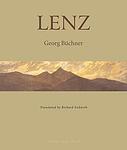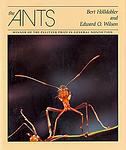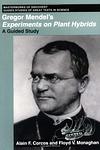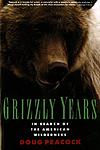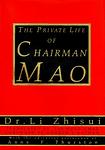The Greatest "Life Sciences" Books of All Time
Click to learn how this list is calculated.
This list represents a comprehensive and trusted collection of the greatest books. Developed through a specialized algorithm, it brings together 300 'best of' book lists to form a definitive guide to the world's most acclaimed books. For those interested in how these books are chosen, additional details can be found on the rankings page.
Genres
The "Life Sciences" category in books encompasses a broad range of disciplines that study living organisms and life processes. This includes fields such as biology, botany, zoology, microbiology, genetics, biochemistry, and ecology, among others. Books in this category may delve into the intricate mechanisms of the cell, the complex interactions within ecosystems, the genetic blueprints that dictate the traits of organisms, or the evolutionary processes that have shaped life on Earth. They can range from introductory texts for students to advanced research publications for specialists. The Life Sciences category is essential for anyone seeking to understand the natural world, from the molecular level to the biosphere, and it serves as a vital resource for students, researchers, and professionals in health, agriculture, conservation, and biotechnology.
Countries
Date Range
Reading Statistics
Click the button below to see how many of these books you've read!
Download
If you're interested in downloading this list as a CSV file for use in a spreadsheet application, you can easily do so by clicking the button below. Please note that to ensure a manageable file size and faster download, the CSV will include details for only the first 500 books.
Download-
26. King Solomon's Ring by Konrad Lorenz
This book is a fascinating exploration of animal behavior by a renowned zoologist. It delves into the author's personal experiences and observations of animals in their natural habitats, focusing particularly on birds, dogs, and jackdaws. The author uses these observations to draw conclusions about animal psychology and behavior, often comparing it to human behavior. The book is named after the biblical King Solomon, who was said to have a ring that allowed him to understand the language of animals.
-
27. Sapiens: A Brief History of Humankind by Yuval Noah Harari
This book provides a comprehensive exploration of the history of the human species, tracing back from the earliest forms of Homo Sapiens to the modern day. It delves into evolutionary biology, the development of cultures and societies, and the rise of major ideologies and technologies. The book also discusses the future of the species, posing thought-provoking questions about our roles and responsibilities in a rapidly changing world.
-
28. In the Shadow of Man by Jane Goodall
This book provides a fascinating and detailed account of the author's groundbreaking research on wild chimpanzees in Africa. The author offers insights into the complex social structure, behavior, and personalities of these primates, challenging the then-prevailing scientific belief that only humans were capable of having personalities and emotions. Through her studies, the author revolutionized our understanding of our closest relatives in the animal kingdom, and she also discusses the threats to their survival and the many challenges they face due to human activities.
-
29. Drunkard by Émile Zola
This novel follows the tragic life of an alcoholic laundress in Paris and her abusive husband. The narrative explores the devastating effects of alcoholism and poverty on both the individual and their family. Despite the protagonist's ongoing struggle to maintain her dignity and protect her two children, her life spirals out of control due to her addiction, leading to a heartbreaking conclusion. The book is a vivid and stark portrayal of the harsh realities of life for the working class in 19th-century Paris.
-
30. To the North by Elizabeth Bowen
The novel follows the life of a young woman who, after the death of her husband, moves to London and falls in love with her sister-in-law's lover. The narrative dives deep into the complexities of human relationships and emotions, exploring themes of love, betrayal, and loss. As the protagonist navigates her way through grief and fresh love, the readers are offered a profound exploration of her internal struggles, painting a vivid picture of her emotional journey.
-
31. Sociobiology by E. O. Wilson
"Sociobiology" is a comprehensive and scholarly work that explores the biological basis of social behavior in all species, including humans. The author weaves together findings from various fields such as ethology, anthropology, evolution, and genetics to propose a new discipline - sociobiology. He suggests that social behavior, including altruism, aggression, and nurturance, is not just a product of learning and environment, but also has a genetic basis. This work sparked considerable debate and controversy, particularly regarding its implications for human behavior and society.
-
32. Genetics and the Origin of Species by Theodosius Dobzhansky
This book is a seminal work in the field of evolutionary biology that introduces the concept of genetics as a fundamental mechanism in the process of evolution and speciation. The author combines theoretical concepts and empirical data to argue that natural selection and genetic variability are the driving forces behind the evolution of species. He also discusses the role of geographic isolation in speciation and provides a comprehensive overview of the genetic basis of evolutionary change.
-
33. Cod: A Biography of the Fish that Changed the World by Mark Kurlansky
This book is a fascinating exploration of the historical, cultural, economic, and ecological impact of the codfish. It traces the role of this fish in shaping economies, sparking wars, and influencing culinary trends across centuries and continents. The book also delves into the devastating effects of overfishing and the current struggle to sustain cod populations. The narrative combines history, science, and gastronomy to present a comprehensive biography of this significant fish species.
-
34. The Mind of the South by W. J. Cash
"The Mind of the South" is a comprehensive exploration of the culture, socioeconomic conditions, and mindset of the American South. The author delves into the historical development of the South, analyzing the impact of slavery, the Civil War, and the subsequent reconstruction on the region's collective psyche. The book provides a critical examination of the South's perceived uniqueness, its racial dynamics, and the enduring influence of its past on contemporary Southern identity.
-
35. The Life of the Bee by Maurice Maeterlinck
"The Life of the Bee" is a philosophical and scientific examination of the behavior and nature of bees. The author delves into the intricate world of the hive, exploring the roles and duties of the worker bees, drones, and queen bee, and the complex societal structure within the hive. The book also discusses the fascinating process of honey production and the life cycle of bees. The author uses the bee society as a metaphor for human society, drawing parallels between the two.
-
36. Lenz by Georg Buchner
"Lenz" is a novella that explores the mind of Jakob Michael Reinhold Lenz, a historical figure and playwright, during his descent into madness. The narrative presents a detailed account of Lenz's mental state as he struggles with depression, anxiety, and hallucinations while living in the mountains. It provides a profound look into the human psyche and the effects of isolation and mental illness.
-
37. The Life of Insects by Victor Pelevin
"The Life of Insects" is a surreal novel that explores the complexities of post-Soviet Russia through the lens of a bizarre seaside community of humans who transform into various types of insects. The narrative unfolds through a series of interconnected stories that delve into the characters' struggles, dreams, and fears, serving as a metaphor for the human condition. The book provides a satirical commentary on society's ills, touching on themes of capitalism, corruption, and the search for identity in a rapidly changing world.
-
38. A Short History Of Nearly Everything by Bill Bryson
This book is a comprehensive exploration of scientific knowledge, covering a wide range of topics from the Big Bang to the rise of civilization. The author aims to understand how we got from nothing at all to where we are now, exploring subjects such as geology, chemistry, paleontology, astronomy, and particle physics. The book also delves into the lives of the scientists behind the discoveries, making the complex concepts accessible to the average reader.
-
39. The Ants by E. O. Wilson, Bert Hölldobler
"The Ants" is a comprehensive exploration of the biology, evolution, and behavior of ants. The book covers a wide range of topics, including the ants' origin and classification, their morphology and physiology, their communication and social organization, and their ecology. It also delves into the complex societies and intricate behaviors of these creatures, providing a detailed insight into their world. The authors use a combination of narrative and scientific explanations to make the subject accessible to both general readers and specialists.
-
40. Theory of Games and Economic Behavior by John Von Neumann
This book is a groundbreaking work that applies mathematical methods to the study of economic behavior. It introduces the theory of games, a mathematical framework for analyzing conflict and cooperation between intelligent rational decision-makers, and its implications for economic behavior. The book covers topics such as zero-sum games, utility theory, and the minimax theorem, and it has had a profound impact on economics, political science, and other social sciences.
-
41. A Critique of the Theory of Evolution by Thomas Hunt Morgan
The book is a scientific critique of the theory of evolution, presenting arguments and evidence against certain aspects of the theory. The author, a prominent biologist, explores the limitations and inconsistencies in the theory of evolution, challenging the widely accepted Darwinian principles. He presents alternative theories and hypotheses, backed by his own research and observations, to explain the process of species development and genetic inheritance, thereby attempting to provide a more comprehensive understanding of biological evolution.
-
42. Function of the Orgasm by Wilhelm Reich
This book presents a groundbreaking exploration of human sexuality, arguing that sexual repression leads to various psychological disorders. The author, a psychoanalyst, introduces the concept of "orgastic potency", which is an individual's ability to fully surrender and discharge pent-up sexual energy during the sexual act. He contends that societal norms and moralistic attitudes towards sex often hinder this release, leading to various neuroses and other psychological issues.
-
43. The Immense Journey by Loren Eiseley
"The Immense Journey" is a collection of essays that explore the wonders and mysteries of nature and human existence. The author, a renowned anthropologist, shares his insights and reflections on evolution, the cosmos, and the interconnectedness of all living things. Through vivid storytelling and poetic prose, he takes readers on a journey from the microscopic world of a single cell to the vast expanses of space, revealing the profound beauty and complexity of the natural world.
-
44. The Diversity of Life by E. O. Wilson
This book is a comprehensive exploration of the variety and richness of life on Earth, written by a renowned biologist. It delves into the concept of biodiversity, examining its importance and the threats it faces. The author discusses the evolution and extinction of species, the complex interactions within ecosystems, and human impact on the environment. The book is a passionate plea for the conservation of the planet's diverse species and ecosystems.
-
45. The Rise And Fall Of The Third Chimpanzee by Jared Diamond
"The Rise and Fall of the Third Chimpanzee" explores the fascinating similarities and differences between humans and our closest living relatives, the chimpanzees. Jared Diamond delves into the evolutionary history of Homo sapiens, examining our complex behaviors, language, art, and technology. He also addresses the darker aspects of human nature, such as violence and environmental destruction, and raises thought-provoking questions about our future as a species. Through a captivating blend of science, anthropology, and history, Diamond offers a compelling exploration of what it means to be human and the challenges we face in our quest for survival.
-
46. Darwin's Black Box by Michael J. Behe
This book presents a critique of the theory of evolution from a biochemical perspective. The author argues that complex biochemical systems within the cell, such as blood clotting and vision, could not have evolved gradually through natural selection because they are "irreducibly complex" - all parts must be present and functioning for the system to work. He proposes that such systems must have been deliberately designed, introducing the concept of "intelligent design" as an alternative to Darwinian evolution.
-
47. Experiments on Plant Hybridization by Gregor Mendel
This seminal work in the field of genetics presents the results of a series of experiments conducted on pea plants, which led to the discovery of fundamental laws of inheritance. The author meticulously cross-bred different varieties of peas and meticulously recorded the traits of their offspring, leading to the formulation of the principles of segregation and independent assortment. These principles, which underpin modern genetics, explain how traits are passed from parents to offspring and how different traits are inherited independently of each other.
-
48. Darwin's Radio by Greg Bear
In the science fiction novel, a groundbreaking discovery of ancient human remains leads to the uncovering of a new, heretofore unseen stage of human evolution. Scientists grapple with the implications of a dormant virus that has suddenly awakened within human DNA, causing rapid, radical, and uncontrolled genetic mutations. As the virus spreads, society is thrown into chaos, with fear and uncertainty about the future of humanity. The protagonists, a molecular biologist and a paleontologist, race against time to understand the virus, known as "Darwin's Radio," and its potential to either doom or elevate the human race. Their journey is fraught with personal and professional challenges as they confront the possibility that evolution might be a much more active and immediate force than anyone had ever imagined.
-
49. Grizzly Years by Doug Peacock
"Grizzly Years" is a memoir of a Vietnam War veteran who finds solace in the wilderness of the American West, specifically in observing grizzly bears. The book chronicles his years of tracking these majestic creatures across the Rockies and Yellowstone, and his efforts to protect them from human threats. The narrative intertwines the author's personal journey of healing from war trauma with his passionate advocacy for grizzly bear conservation.
-
50. The Private Life of Chairman Mao by Li Zhi-Sui
This book is a memoir written by a personal physician who served Chairman Mao for over two decades. It offers an unprecedented and intimate look into the life and character of the powerful Chinese leader. The book reveals Mao's personal habits, manipulative nature, political maneuvers, and his disregard for human life in the pursuit of his goals. It also uncovers the power struggles within the Chinese Communist Party, providing a unique perspective on China's political history.
Reading Statistics
Click the button below to see how many of these books you've read!
Download
If you're interested in downloading this list as a CSV file for use in a spreadsheet application, you can easily do so by clicking the button below. Please note that to ensure a manageable file size and faster download, the CSV will include details for only the first 500 books.
Download

